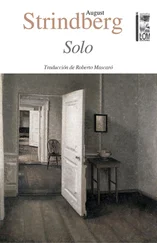August Strindberg - Historical Miniatures
Здесь есть возможность читать онлайн «August Strindberg - Historical Miniatures» — ознакомительный отрывок электронной книги совершенно бесплатно, а после прочтения отрывка купить полную версию. В некоторых случаях можно слушать аудио, скачать через торрент в формате fb2 и присутствует краткое содержание. Жанр: foreign_prose, foreign_antique, на английском языке. Описание произведения, (предисловие) а так же отзывы посетителей доступны на портале библиотеки ЛибКат.
- Название:Historical Miniatures
- Автор:
- Жанр:
- Год:неизвестен
- ISBN:нет данных
- Рейтинг книги:5 / 5. Голосов: 1
-
Избранное:Добавить в избранное
- Отзывы:
-
Ваша оценка:
- 100
- 1
- 2
- 3
- 4
- 5
Historical Miniatures: краткое содержание, описание и аннотация
Предлагаем к чтению аннотацию, описание, краткое содержание или предисловие (зависит от того, что написал сам автор книги «Historical Miniatures»). Если вы не нашли необходимую информацию о книге — напишите в комментариях, мы постараемся отыскать её.
Historical Miniatures — читать онлайн ознакомительный отрывок
Ниже представлен текст книги, разбитый по страницам. Система сохранения места последней прочитанной страницы, позволяет с удобством читать онлайн бесплатно книгу «Historical Miniatures», без необходимости каждый раз заново искать на чём Вы остановились. Поставьте закладку, и сможете в любой момент перейти на страницу, на которой закончили чтение.
Интервал:
Закладка:
“Aspasia is not beautiful, but her soul is beautiful and good. Is it not, Pericles?”
“Aspasia is my friend, and the mother of our child; Aspasia is a wise woman, for she possesses modesty and conscientiousness, self-knowledge and foresight; Aspasia is prudent, for she is silent when wise men speak. But Aspasia can also cause wise men to speak wisely by listening to them; for she helps them to produce thoughts, not like Socrates’ midwife, who only brings corporeal births to pass, but she incarnates their souls.”
Protagoras continued: “Aspasia is like the Mother Cybele of us all; she bears us in her bosom.”
“Aspasia is the scale of the zither, without whom our strings would not sound.”
“Aspasia is the mother of us all,” recommenced Socrates, “but she is also the midwife who washes our new-born thoughts and wraps them in beautiful swaddling-clothes. Aspasia receives our children dirty, and gives them back to us purified. She gives nothing of herself, but by receiving gives the giver the opportunity to give.”
Euripides resumed the topic which they had dropped: “I was accused, and am acquitted—am I not, Aspasia?”
“If you can acquit yourself of the accusation, you are acquitted, Euripides.”
“Accuse me, dear Accuser; I will answer.”
“I will bring the accusation in your own words. Hippolytus says in one passage in your tragedy of that name: ‘O Zeus, why, in the name of heaven, didst thou place in the light of the sun that specious evil to men—women? For if thou didst will to propagate the race of mortals, there was no necessity for this to be done by women, but men might, having placed an equivalent in thy temples, either in brass or iron, or weighty gold, buy a race of children each according to the value paid, and thus might dwell in unmolested houses, without females.’”
“But now first of all, when we prepare to bring this evil to our homes, we squander away the wealth of our houses.”
“How evil woman is, is evident from this also, that the father who begat her and brought her up, having given her a dowry, sends her away in order to be rid of her.”
“Now defend yourself, Euripides.”
“If I were a Sophist like Protagoras, I should answer, ‘It was Hippolytus who said that; not I.’ But I am a poet, and speak through my characters. Very well; I said it, I meant it when I wrote it, and I mean it still. And yet I almost always love any given woman, though I hate her sex. I cannot explain it, for I was never perverse like Alcibiades. Can you explain it, Socrates?”
“Yes, a man can hate and love a woman simultaneously. Everything is produced by its opposite—love by hate, and hate by love. In my wife I love the good motherly element, but I hate the original sin in her; therefore I can hate and love her at the same time. Is it not so, Protagoras?”
“Now it is Socrates who is the Sophist. Black cannot be white.”
“Now it is Protagoras who is simple. This salt in the salt-cellar is white, but put out the lamps, and it is black. The salt therefore is not absolutely white, but its whiteness depends on the light. I should be inclined rather to believe that salt is absolutely black, for darkness is merely the absence of light, and is nothing in itself, communicates no quality of its own to the salt, which in the darkness is something independent, consequently its real nature is black.
“But in the light a thing can be both black and white. This sea-sole, for instance, is black above, but white below. In the same way something can be good and bad at the same time. Therefore Euripides is right when he says that he loves and hates woman simultaneously. The misogynist is he who only hates woman, but Euripides loves her also. Therefore he is not a misogynist. What do you think, Aspasia?”
“Wise Socrates! You confess that Euripides hates women, therefore he is a woman-hater.”
“No, my dear child, I admitted that Euripides both loves and hates women,— both , mark you. I love Alcibiades, but I abhor and hate his want of character; now I ask the friends here, am I a hater of Alcibiades?”
“No, certainly not,” they answered simultaneously. But Aspasia was roused, and wished to rouse him. “Wise Socrates, how do matters stand between you and your wife?”
“The wise man does not willingly speak of his wife,” Protagoras struck in: “nor of his weakness.”
“You have said it. One sacrifices to the earth, but unwillingly; one binds oneself, but without pleasure; one endures, but loves not; one does one’s duty to the State, but with difficulty. There is only one Aspasia, and she belongs to Pericles—the greatest woman to the greatest man. Pericles is the greatest in the State, as Euripides is the greatest on the stage.”
This was an opportunity for Protagoras, without his needing to seek it. “Is Euripides greater than Aeschylus and Sophocles?” he asked.
“Certainly, Protagoras! He is nearer to us; he speaks our thoughts, not those of our fathers; he does not cringe before the gods and fate; he fights with them; he loves men, knows them, and laments them; his art is more elaborate, his feelings warmer, his pictures more life-like than those of the ancients. But now I should like to speak of Pericles.”
“Stop, Socrates! In the Pnyx or the Agora, but not here! Though I should be glad of a word of encouragement since false accusations rain on me. We have come here to forget and not to remember ourselves, and Socrates delights us most when he speaks of the highest things, among which I do not count the State of Athens. Here comes Alcibiades with his following. Kindle more lights, boys, and put more ice in the wine.”
There was a noise at the entrance; the dog barked, the doorkeeper shouted, and Alcibiades entered with his companions. These consisted of girls and of two strangers whom he had found in a wine-house.
“Papaia!” he cried. “Here is the host! And here is Aristophanes, a future dramatist. Here is the Roman Lucillus, formerly a Decemvir, who has been banished. There is one of the many Laises who have sat to Phidias. Aspasia must not take it ill. And here are flute-players from Piraeus. Whether they have the pestilence, I know not! What can they do to me? I am twenty years old, and yet have done nothing? Why, then, should I live? Now Lais will dance. Papaia!”
Euripides rose and made a sign for silence. “Let the dance wait; Pericles is not pleased, and looks serious.” A pause followed. The heat was oppressive. It was not thunder-weather, but something like it, and a sense of uneasy expectation seemed to weigh upon all their spirits.
Then, as if by accident, the arm of the skeleton fell on its knee with a slight snap. The flower, which it had held under its nose, lay on the earth.
All started, even Alcibiades, but, angry with himself for this weakness, he took a cup and stepped forward.
“The skeleton is thirsty! I drink to it! Who pledges me?”
“Socrates can do so the best. He can drink half a jar of wine in one pull, without winking.”
As a matter of fact, Socrates was notorious for his drinking powers, but now he was not in the mood. “Not to-day! Wine is bitter to my taste,” he said.
And turning to Pericles, he whispered: “Evil eyes have come here. This Aristophanes is not our friend! Do you know him?”
“Very little, but he looks as though he would like to murder us.”
Alcibiades continued to address the skeleton: “Thus looks Athens at this moment! Sparta and the Persian King have gnawed off its flesh; Cleon has tanned its skin; the allies have gouged out its eyes; the citizens have drawn out its teeth,—those citizens whom Aristophanes knows and whom he will soon describe. Here’s to you, skeleton! ‘[Greek: Polla metaxu pelei kulikos kai cheileos akrou ]!’”
Читать дальшеИнтервал:
Закладка:
Похожие книги на «Historical Miniatures»
Представляем Вашему вниманию похожие книги на «Historical Miniatures» списком для выбора. Мы отобрали схожую по названию и смыслу литературу в надежде предоставить читателям больше вариантов отыскать новые, интересные, ещё непрочитанные произведения.
Обсуждение, отзывы о книге «Historical Miniatures» и просто собственные мнения читателей. Оставьте ваши комментарии, напишите, что Вы думаете о произведении, его смысле или главных героях. Укажите что конкретно понравилось, а что нет, и почему Вы так считаете.












